What do recruiters look for?
Recruiters are looking for candidates that are a close match to what an employer has outlined as the hiring requirements for the position. In essence, they are looking for square pegs for square holes. If your work history and accomplishments meets their current or future needs, they may add you to their database. Recruiters may contact you if they have a position that fits your profile — or they may make contact to ask you to recommend other people who might be interested in an opening they are recruiting for.
Finding a recruiter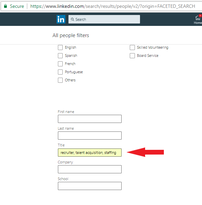
There are many ways to connect with a recruiter. Sometimes, a recruiter will find you. This is particularly true if you have specialized, in-demand skills. If you post your résumé to an online job board, you are likely to receive contact from recruiters. Others may identify you through a professional association you’re a member of, or through mentions of your work that appear online (for example, blogs, articles, and publications).
LinkedIn is also one of the most common ways to be “found” by a recruiter. Recent surveys indicate that 95% of recruiters use LinkedIn to identify candidates. You are more likely to be found on LinkedIn if you have a complete profile that is optimized with specific keywords and accomplishments. Recruiters are always looking for good candidates to add to their database. But you don’t need to wait to be found to work with a recruiter. Proactively making a connection with one or more recruiters can be a good strategy, even if you are not currently looking for a new position. LinkedIn can be an effective way for you to make a connection with a recruiter. Use the “People Search” function on LinkedIn to find recruiters in your field or specialty. Search the “Keywords” or “Title” field for recruiter and keywords and industries relevant for your field, like “engineering,” “manufacturing,” or “technology.” You can then narrow down the search by other criteria, like location. You can continue refining the results until you come up with a few names to contact. Google can also help you find recruiters. Search Google (http://www.google.com) using a search such as “IT Recruiter Las Vegas” or “Engineering Recruiter San Antonio.” You can also search Google and job boards for jobs posted by recruiters. If you find postings for positions similar to the one you’re interested in, you can contact the recruiter and present yourself for other opportunities. You can also use a résumé distribution research firm to identify targeted recruiters to contact. For example, Profile Research (http://www.profileresearch.com) can research and develop lists of recruiters that are looking for candidates with your qualifications and expertise. For a fee, they will identify the recruiters and distribute your résumé and cover letter to these individuals (either via e-mail or offline). You can use free and paid online directories to access recruiters as well. Custom Data Banks (https://www.customdatabanks.com/) maintains an online directory of recruiters. Online Recruiters Directory is another resource that you may want to explore here: http://www.onlinerecruitersdirectory.com/. SearchFirm One free directory option is SearchFirm (http://www.searchfirm.com). Designed to help executive search firms connect with corporate clients, jobseekers can search the database by specialty, geography, and recruiter name.
NPA (The Worldwide Recruiting Network) - Jobseekers can also search the online directory of The Worldwide Recruiting Network (http://www.npaworldwide.com/DIRECTORY/) to find member firms.
The NPA website also has a job search to tool for jobseekers to view listings posted by recruiters within their network. Search the NPA Job Board by job title, keywords, and/or specialties (https://npaworldwide.com/for-job-seekers/ ).
Often the best way to find a recruiter, however, is through a referral from someone you know. Talking with co-workers in your field to see who they have worked with is a great way to find a recruiter. If there’s a specific company you want to work for, you can also make a connection with someone in their human resources department and ask if there is a specific recruiter or recruiting firm they work with often. Learning proven networking strategies will always help you be more effective.
Research your recruiter. See if he or she has been involved in any high-profile searches in your industry (these are sometimes profiled in industry publications). Google your recruiter’s name and see what job postings he or she has listed online. You are trusting your personal information and reputation to your recruiter, so trusting him or her is essential. AuthorMandy Fard is a Certified Professional Resume Writer (CPRW, CMRW) and Recruiter with decades of experience in assisting job seekers, working directly with employers in multiple industries, and writing proven-effective resumes. Ace the job interview!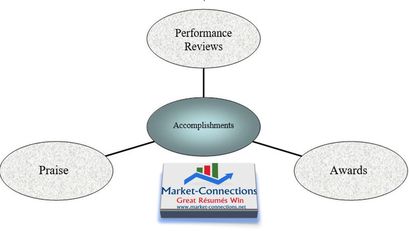 Accomplishments demonstrate your skills and experience. It’s one thing to claim you can do something — it’s another to prove you’ve done it. When collecting accomplishments for a job search, consider the key areas of competency required for success in the position you are seeking. What are the key components of your job? You should be able to identify accomplishments directly related to this expertise. To think of your accomplishments, take a look at your past performance reviews and think about any awards or recognition you’ve received. It may even lead you to start building your own professional portfolio. The most important part of the accomplishment is outlining your results. To be most effective, however, you also need to provide context for your accomplishment. There are several different formats to do this. Here are three common formats: STAR, CAR, and PAR. STAR
Recruited to revitalize an underperforming sales territory characterized by significant account attrition. (Situation) Tasked with reacquiring accounts that had left the company within the last six months. (Task) Developed contact list for lapsed accounts and initiated contact with decision-makers at each company. (Action) Reacquired 22% of former customers, resulting in $872,000 in revenue. CAR
Manufacturing plant recently had its third accident, leading to a line shutdown. (Challenge) Updated internal safety plan and instituted new training program for production employees to reduce accidents and injuries. (Action) Plant has been accident-free for the past nine months — the longest it has been without accidents in plant history. (Result) PAR
Nursing home employee morale was at an all-time low, and long-time employees were leaving in droves. (Problem) Identified that new scheduling system was not well received by either new hires or long-time employees, resulting in significant dissatisfaction with employee schedules. Instituted new “employee choice” schedule system that increased employee cooperation in determining ideal staffing schedule and improved employee satisfaction as a result. (Action) Reduced turnover by 15%, saving more than $12,500 in hiring and training costs in the first three months after implementing new system. (Result) Quantifying your accomplishments also helps you stand out from others who do the work you do — whether you’re using the information for a raise or promotion request, or when seeking a new job opportunity. AuthorMandy Fard is a Certified Professional Resume Writer (CPRW, CMRW) and Recruiter with decades of experience in assisting job seekers, working directly with employers in multiple industries, and writing proven-effective resumes. Job search planning tipsMany jobseekers have no clue about the research and statistics when it comes to their job search. Research indicates that in today’s market employees spend an average of 4 years per job — and most people have up to 12 to 15 jobs throughout their career. Here are 4 planning strategies that jobseekers can implement for a successful job search. Remember, you only need one company to hire you. Instead of focusing your efforts on making dozens or hundreds of contacts with prospective employers, be selective! In fact, there are highly effective startegies to success.
AuthorMandy Fard is a Certified Professional Resume Writer (CPRW, CMRW) and Recruiter with decades of experience in assisting job seekers, working directly with employers in multiple industries, and writing proven-effective resumes. |
Categories
All
powered by Surfing Waves
AuthorMandy Fard is a Certified Professional Resume Writer (CPRW, CMRW) and Recruiter with decades of experience in assisting job seekers, working directly with employers in multiple industries, and writing proven-effective resumes. Archives
December 2023
|


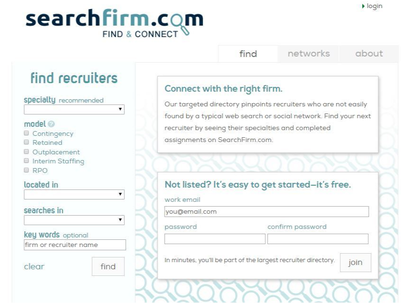
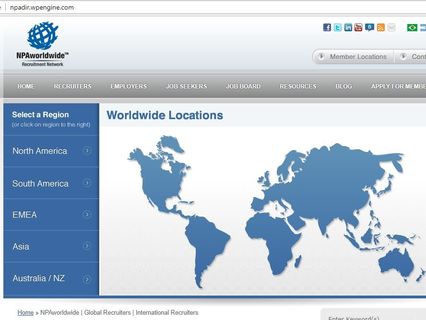
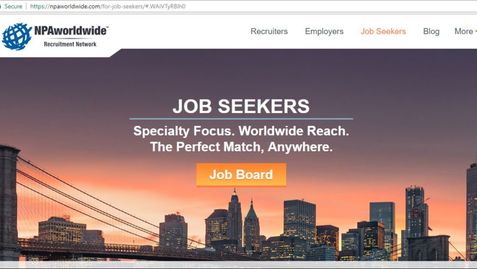




 RSS Feed
RSS Feed



